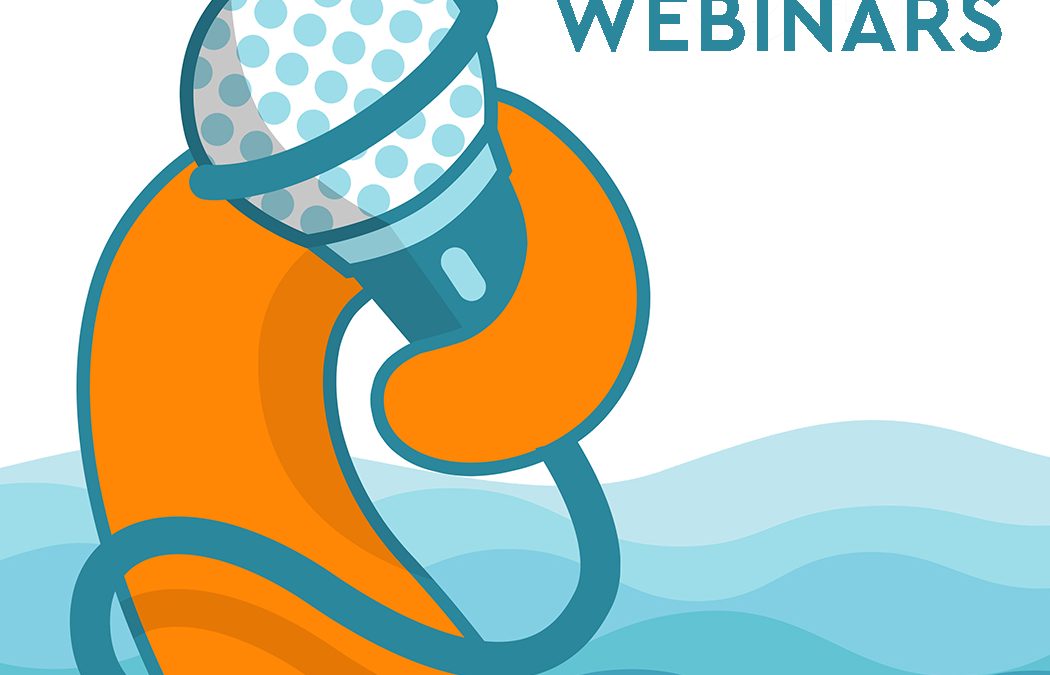
by Sarah Carr, Ph.D. | May 5, 2022 | Past Webinars, Webinars
This webinar originally aired on Thursday, May 5, 2022. Presented by: Purificaciò Canals, Team Leader of the Ocean Governance Project. Description: The European Union Ocean Governance project brings together partners from North America, South America, Europe, Africa, and Asia to improve the work of MPA managers in the field. The Ocean Governance project has developed two self-assessment tools for MPAs – the Coastal Resilience Self-Assessment Tool and the Marine Mammals Self-Assessment Tool. It also connects regional and national networks and learning exchanges of MPA managers, promotes transboundary cooperation for marine protection, and is working to restore sites in Indonesia, Malaysia, and Philippines. This webinar will provide an overview of the whole project as well as present the two self-assessment tools.

by Sarah Carr, Ph.D. | Apr 22, 2022 | Past Webinars
This webinar originally aired on April 28, 2022. Presented by: Deirdre Brannigan of ProtectedSeas. Being able to access rules and regulations in marine protected areas (MPAs) is critical to understanding which MPAs or OECM (other effective conservation measures) have restrictions in place to meet conservation goals. The ProtectedSeas Navigator mapping project is a one-stop resource for policymakers to find out where MPAs are located as well as discover the existing regulations and evaluate their various levels of protection. This regulations-based tool can be used to inform protection analyses and aid in forecasting other areas that need protection. Currently ProtectedSeas has data for over 15,500 MPAs in more than 106 countries –the only place this comprehensive repository of information and data exists. ProtectedSeas is in a formal public-private partnership with the US NOAA MPA Center. This webinar will be of special interest to MPA managers, resource protection staff, policy makers, scientists, and the conservation community who are interested in assessing ocean conservation regulations and protection metrics.

by Sarah Carr, Ph.D. | Apr 6, 2022 | Past Webinars
This webinar originally aired on April 6, 2022. Presented by: Yousr Ben Fadhel and Louis Vercauteren of BlueSeeds. BlueSeeds is a French company that helps MPAs reach financial sustainability and increase the effectiveness of their conservation activities. BlueSeeds believes that one way of supporting MPA managers is to provide them practical tools that can make their day-to-day management work easier while also financing some of their conservation activities. To this end, BlueSeeds has developed a web app that MPA managers can use to manage the booking of their MPA moorings. With this tool, MPA managers can control and monitor the recreational use of the MPA, communicate more easily with visitors, and generate conservation revenues from the paid booking of moorings managed through the web app.

by Sarah Carr, Ph.D. | Mar 16, 2022 | Past Webinars
This webinar originally aired on March 16, 2022. Presented by: Sinclair Vincent, Anna Mortimer, and Kristen Linscott of Verra. Verra is a nonprofit organization that develops and provides standards that drive investment toward high-impact activities addressing environmental and social challenges across the globe. The rigorous process to meet Verra’s standards include independent verification and issuance of claims and credits. Verra’s standards are employed by a broad variety of governments, corporations and other private actors, and NGOs around the world. This webinar will present Verra’s programs in climate and sustainability focusing on standards in Blue Carbon to sequester carbon dioxide, Coastal Resilience to improve protection of human and environmental assets, and Plastic Waste Reduction to reduce waste ending up in the environment and incentivize recycling.

by Sarah Carr, Ph.D. | Mar 1, 2022 | Past Webinars
This webinar originally aired on March 1, 2022. Presented by: Ibon Galparsoro of AZTI. Marine renewable energies are gaining momentum around the world due to the need to develop safe energy sources that can help the world decarbonize and fight climate change. However, the full potential of energy from waves, currents and wind has yet to be tapped – in part due to uncertainty about how energy conversion devices may impact the marine environment. AZTI has developed a new tool – the WEC-ERA Tool – to assess the ecological risk of wave energy converters. This is an open-access tool for managers, decisionmakers, industry and others to evaluate the environmental risks associated with new wave energy projects. The tool evaluates how three different wave power conversion technologies – oscillating water column, oscillating wave surge converters, and wave turbines – affect the ecosystem. The system addresses all phases of the lifecycle of those power conversion technologies, from installation to operation to dismantling. This tool is intuitive and easy to use. The characteristics of the proposed installation are entered (i.e., number of units, total authorized surface, installed production capacity in megawatts, project lifespan in years, and area reserved for the equipment). Results consider possible impacts on the seabed and native bird, mammal, fish, reptile, and cephalopod species.

by Sarah Carr, Ph.D. | Feb 15, 2022 | Past Webinars
This webinar originally aired on February 24, 2022. Presented by: Steve Morrison of NOAA, Jenna Jambeck of the University of Georgia, and Keri Browder of the Ocean Conservancy. This webinar will present the NOAA Marine Debris Program and its partnerships to curb plastic waste. It will cover the program’s overarching portfolio and goals as well as one of its programs – Urban Ocean. Led by Ocean Conservancy and in close collaboration with University of Georgia’s New Materials Institute and Circularity Informatics Lab, Urban Ocean provides a platform for city governments to connect with one another as well as with community leaders, academia, and the private sector to develop, share, and scale solutions to the ocean plastics crisis while progressing their broader urban development priorities. The webinar will showcase Urban Ocean’s recent findings and outputs, including the results of the Circularity Assessment Protocol in each of the learning cities and the recently released Urban Ocean Toolkit.

